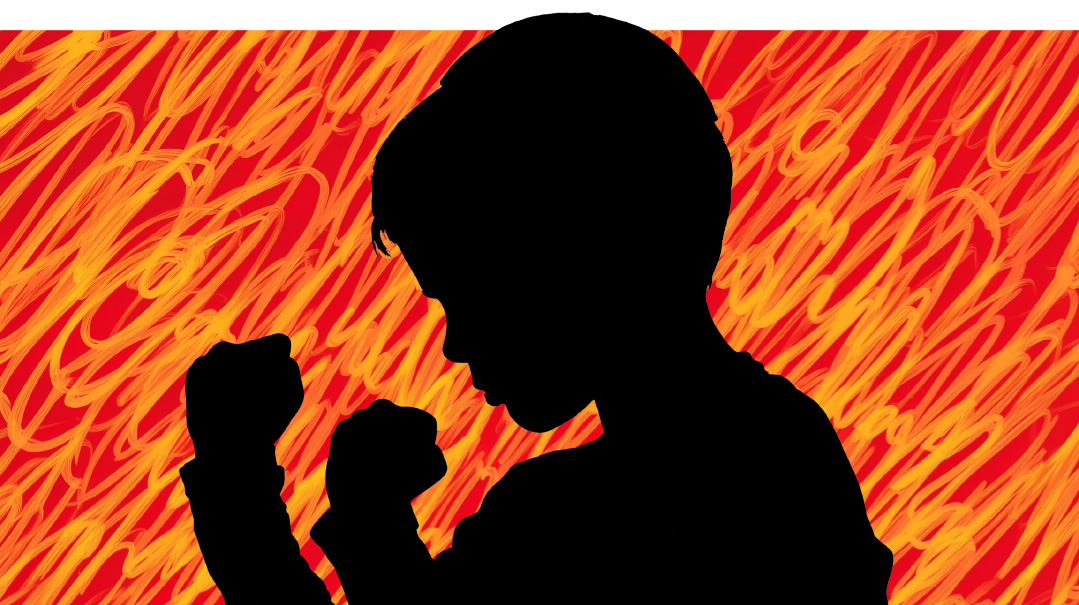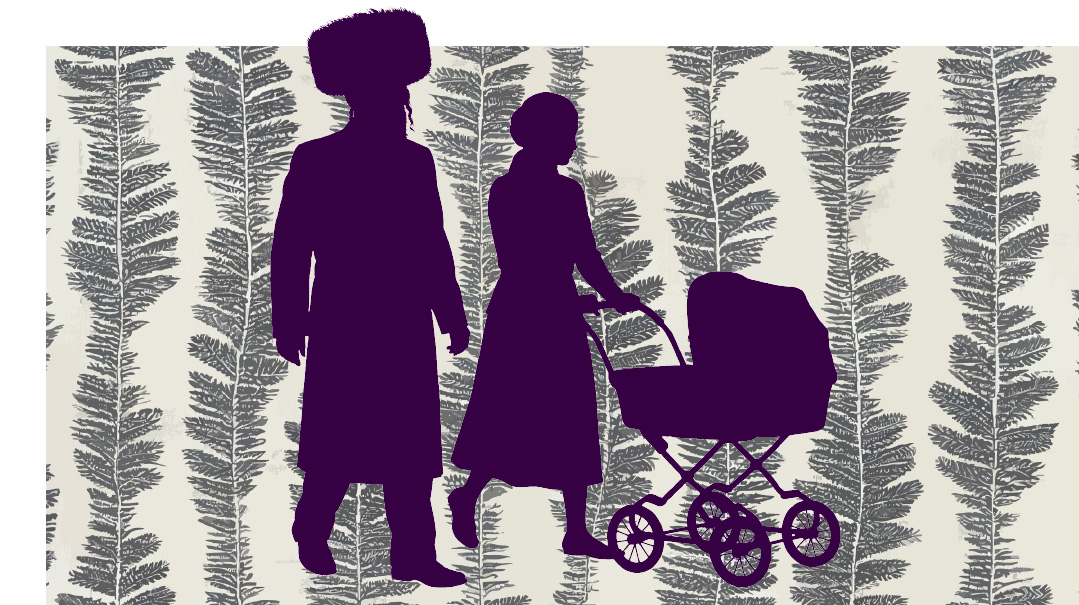Widowhood
| August 2, 2022Being widowed leaves a gaping hole — here’s how you can help

I was just 37 years old when my husband passed away, leaving me with four small children. It took some time for me to absorb that the loss was real, and not a horrific nightmare I’d soon wake up from. Amputees often suffer from phantom limb syndrome, a condition in which they continue to feel sensation or pain from the limb that’s no longer there. On an emotional level, that’s how I felt during the first few months after my husband passed away. I’d reach for the phone to call him, or look at the clock to see when he’d be coming home from work, or wake up in the middle of the night and wonder why he wasn’t in bed.
Grieving certainly didn’t end when the shivah finished. When people who hadn’t been able to be menachem avel reached out afterward with a condolence card or phone call, I always appreciated the gesture. When friends sent letters with stories and memories of my husband, I especially cherished those.
Still, even with the intense grief, life had to move on, and I slowly tried to adjust to my new normal. When I did venture outside to try to get back into routine, though, I didn’t appreciate people coming over to offer their condolences in public, puncturing my illusion of normalcy. And having children in tow only exacerbated that feeling.
Drawing on my personal experience, I’ve made it my mission to educate communities on how to help families going through a medical crisis or who have suffered a loss, through my book If There’s Anything I Can Do... and speaking engagements on these subjects. Here are some of the points I feel are most crucial to keep in mind:
Community Support
As a single parent of two sons, I quickly found out just how integral a father’s role is in a frum home. There were so many things that came up in which their Tatty’s presence was sorely lacking, from davening in shul, reviewing Mishnayos, learning how to put on tefillin, and selecting arba minim. I was so grateful when community members stepped in to help out.
I remember sending my ten-year-old son off to what I thought was a class Melaveh Malkah, only to find out afterward that it actually was a father-son learning program. I was beside myself and waited anxiously for him to come home so I could do damage control. I was pleasantly surprised when he returned and happily told me he’d had such a good time, and that a man named Mr. G. had learned with him. When I called Mr. G. to profusely thank him, he told me that he’d been on his way home after his own learning seder. Noticing the boys’ program, he’d stopped in on his own initiative see if any of the boys needed someone to learn with. He learned with my son for many years after that.
I also gratefully remember the neighbor who helped fit my sons with proper gloves for Yiddle League, and his teenage son who helped them build amazing snow forts in the winter.
Simchahs
Making a simchah alone isn’t easy, and I so appreciated all the friends who offered to help out with the myriad preparations. Their support meant the world to me. I found that the loss I’d suffered was always in the background, even when it came to happy occasions.
The night before my first child’s wedding, I had a very emotional conversation with my BFF, Chana. I didn’t know how I was going to face everyone the next day. Chana chose her words carefully. “You just do whatever you have to do to get through tomorrow in whatever way is best for you,” she said. “Don’t worry about what other people will think.” Her comforting words validated my emotional roller coaster of feelings, and the next day the only tears I shed were those of happiness.
I also found attending simchahs alone a little sticky. Calling a widowed guest ahead of time and asking who she’d like to sit with is a very thoughtful, appreciated gesture. But making a table of just widows, divorcees, and single women? Bad idea.
Shabbos and Yom Tov
Shabbos and Yom Tov also became loaded times after my husband passed away. Different women will have different preferences when it comes to Shabbos meals, with some preferring to be hosted, and others preferring to stay home, and possibly hosting others. Naturally, these preferences can change as the years go on.
If you’re going to extend an invitation to a widow and her family, try to call earlier in the week, if at all possible, so they don’t think of themselves as an “afterthought.” It’s also important not to assume that just because a widow has family in town, she doesn’t need Shabbos invitations. No one truly knows others’ family dynamics.
I remember one invitation I was reluctant to accept that worked out beautifully. My teenage daughter really wanted me to join her at her friend’s home for a Shabbos seudah. I was hesitant, because I didn’t know the family well, but went along with her anyway. When we entered, the hostess immediately came over and put her arm around me. “I’m so happy you were able to join us today,” she said. “I saved a place for you next to me so we can get better acquainted.” That was the first of many Shabbos meals I had at their house — with and without my daughter.
Another Yom Tov memory I’ll never forget is that bleak Chanukah evening when I was stuck at home because my kids had chicken pox. They were itchy and miserable, and I felt pretty miserable myself. Suddenly there was a knock on the door, and a family we were close to came in with their arms filled with Chanukah presents, donuts, and latkes. I don’t think I was ever so happy to see anyone!
Never, Ever!
Refer to the bereaved family members as the alman/almanah/yesomim at the levayah. Call the grieving family by their given names. It’s devastating for them to be referred to by their unfortunate “new status” when they are just processing their enormous loss.
Spell It Out
If you’re in a position to help a new widow, tell her specifically what you’re able to do. She’ll feel much more comfortable asking you for help if she knows you’re not going out of your way. Give her a list of what errands you usually do on specific days, i.e., the grocery store, bank, post office, library, etc… or any carpools you’re able to help with.
Our community doesn’t have busing, so our lives revolve around Excel carpool charts. The year I lost my husband, my neighbors took it upon themselves to do my afternoon carpools for me. I was grateful beyond belief that these incredibly busy stay-at-home and working-out-of-the-home women let me have that time in the afternoon to adjust to my new single-parenthood reality.
Second Chances
Some women want to remarry right away and others might not want to entertain the thought of remarriage for years. There’s nothing wrong with making a suggestion to someone and, actually, we’re quite complimented that you thought about us.
My personal note of hope: After being an almanah for 17 years, my good friend Sari, who never forgot about me, made my second-time-around wonderful shidduch.
Money Matters
If the spouse that passed away was the primary breadwinner, it just adds to the enormity of the situation. Speak with the bereft family’s rav, rebbetzin, or a close family or family member to see how you can help them financially. Can a trust fund be set up to help pay for school tuitions, camps, and chasunahs?
Don’t assume that a family doesn’t need help because they have a very wealthy relative. Never make assumptions when it comes to someone else’s financial situation.
Keep in mind that while it’s vital to help, it’s so important to be as discreet as possible when giving monetary gifts. Store coupons that can be used for groceries, clothes, or in restaurants are a wonderful way to help out, as is giving schools money toward tuition bills.
Personally, I gratefully remember the anonymous donor who sponsored monthly dinners for our family at one of the local restaurants. One month it would be pizza, the next Chinese, the following burgers, etc… I was so pleased I was able to do this for my children, and they never knew I didn’t actually pay for it. I was on such a limited budget at the time, and this monthly treat lifted my spirits immensely.
On a related note: It’s so important for the breadwinners in the family to have a life insurance policy. Consider gifting new couples with the first month of a policy as a way of conveying how serious the issue is.
Trust Us
We are still the same people we always were; we just need you to be a little more patient and kinder with us as we navigate our new world as a single person once again.
Don’t take it personally if we don’t heed your well-meaning advice. You can give us information that you think might be useful to us or our children — but let it go after that. Don’t continue to give us unsolicited advice.
Be it at shivah or through the ensuing months and years… being a “listening friend” is so helpful. Many times, we just need you to listen to us share our emotional pain, fears for the future, grief, issues with our kids, etc… Letting us express ourselves freely allows us to relieve our tension and, if possible, solve our own problems. The best advice you can give is silence. But, if we do specifically ask for your guidance, be sure to communicate a positive attitude and never disparage the emotional turmoil we’re going through.
Communicate your confidence in us! I have a card that my good friend, Judy, sent me out of the blue that says, “Sometimes it must be hard being a Mom and a Dad. I just want you to know that I think you are doing a terrific job.” I treasured that card and kept it on my dresser for years. It gave me so much chizuk to know people saw how hard I was trying to raise good children.
This article is dedicated in memory of Miriam bas Reb Binyamin.
The author can be contacted via Mishpacha.
(Originally featured in Family First, Issue 804)
Oops! We could not locate your form.







